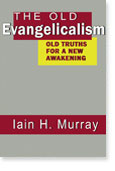I suppose if I had to sum this blog up in one word it would be ‘appreciation’. Appreciation for men and women of God who have lived in past ages, or are living in our present age who provide a blessing through their example or teaching. It enriches and blesses me so much to be in contact with these individuals through Christian literature, and then be able to share some nuggets from them on this site. That being said, there are limits to their usefulness. At the end of the day all humans are only humans, and while their example or teaching might be hugely edifying they are still prone to mistake and error. A quote from Richard Baxter has really clarified the limits of usefulness for me, and I think it gives wisdom as we appreciate those who have gone before us, and current ‘heroes of the faith’ in the twenty-first century:
‘I now see more good and more evil in all men than heretofore I did. I see good men are not as I once thought they were, but have more imperfections. And the nearer approach and fuller trial doth make the best appear more weak and faulty than their admirers at a distance think…It is a grand pernicious error to think that the same man’s judgements must be followed in every case. And it is of grand importance to know how to value our guides, as the cases vary’.
 I came across Baxter’s quote in Iain H. Murray’s ‘The Old Evangelicalism’, which has been helping me so much over the past week or so. It really is an excellent book. Murray succeeds in providing the reader with his normal blend of warm writing style, acute historical sense, and incisive contemporary comment, as he probes the nature of current and historic evangelicalism. His chapter on ‘The Cross – the Pulpit of God’s Love’ is the finest handling of the tension between God’s sovereignty and the free offer of the gospel that I have ever read. I’m currently on chapter 5 which is ‘What can we learn from John Wesley?’, and I can tell by its balanced tone that it is going to be hugely helpful…
I came across Baxter’s quote in Iain H. Murray’s ‘The Old Evangelicalism’, which has been helping me so much over the past week or so. It really is an excellent book. Murray succeeds in providing the reader with his normal blend of warm writing style, acute historical sense, and incisive contemporary comment, as he probes the nature of current and historic evangelicalism. His chapter on ‘The Cross – the Pulpit of God’s Love’ is the finest handling of the tension between God’s sovereignty and the free offer of the gospel that I have ever read. I’m currently on chapter 5 which is ‘What can we learn from John Wesley?’, and I can tell by its balanced tone that it is going to be hugely helpful…